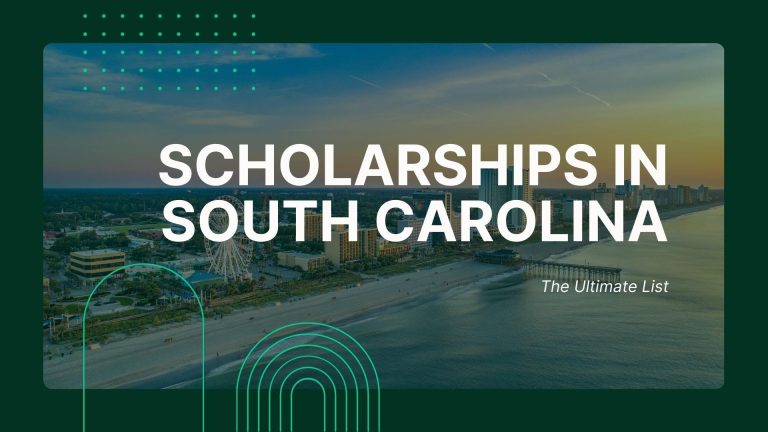Considering a PhD? If you want to become a professor or researcher or pursue advanced studies in economics, business, finance, or sciences, A PhD might be the perfect path. However, the financial and time commitments are something to really think through—tuition costs, opportunity costs of not working, and the demands of a rigid program often can discourage prospective students.
For those juggling financial responsibilities and seeking complete coverage of tuition and living expenses, finding a fully funded PhD program is essential.
We’ll explore the realities of pursuing a PhD, including how to find fully funded programs, what typically covers them, and the challenges you might face. We’ll also dive into key questions: Are PhDs worth the time and effort? Are fully funded programs common in your field of interest? And what should you prepare for when applying? Keep reading to find out how to make it work for you!
Still looking for more scholarship opportunities that align with your academic program? Find answers for specific scholarships at Scholarship Institute.

9 PhD Scholarships to Apply for in 2025
NSF Graduate Research Fellowship Program (GRFP)
Summary: Flagship fellowship supporting early-stage researchers in STEM fields at U.S. universities. Portable across institutions and used in 3 fellowship years within a 5-year window.
Eligibility: U.S. citizens or permanent residents in research-based graduate programs in eligible STEM fields. Check solicitation for new and continuing-student rules.
Award: $37,000 annual stipend plus $16,000 cost-of-education allowance to your institution.
Key dates: Field-specific deadlines are in October each year.
National GEM Consortium — MS Engineering and PhD Fellowships
Summary: Funding plus paid industry internship for underrepresented students in engineering and applied science. MS and PhD tracks available.
Eligibility: U.S. citizens or permanent residents in engineering or applied science who apply to GEM member universities with a minimum GPA of 3.0.
Award: Full tuition at a GEM member university plus at least $16,000 total stipend for MS fellows (additional internship salary). PhD fellows receive tuition coverage, stipend support, and a paid internship; exact amounts vary by sponsor.
Key dates: Application opens July 1. Final deadline is November 14, 2025.
NDSEG Fellowship (U.S. Department of Defense)
Summary: Three-year doctoral fellowship for science and engineering fields aligned with DoD research priorities. Covers tuition and fees directly.
Eligibility: U.S. citizens in or applying to research-based graduate programs within approved disciplines.
Award: Full tuition and fees, $40,800 annual stipend, and a travel budget during fellowship tenure.
Key dates: Next application cycle is open from August 15 – November 15, 2025
NIMH T32 Mental Health Services & Systems Training Grant — Johns Hopkins Bloomberg SPH
Summary: Pre-doctoral and post-doctoral training support for scholars focused on mental health services, systems, and policy research. Support typically includes stipend, tuition, and insurance per NIH T32 rules.
Eligibility: U.S. citizens or permanent residents admitted to relevant Hopkins doctoral programs. Predoc applicants apply through the department.
Key dates: Align with departmental PhD admissions cycles.
Gates Cambridge Scholarship (PhD at the University of Cambridge)
Summary: Full-cost scholarships for outstanding applicants from outside the UK pursuing PhDs at Cambridge. Includes university fee, maintenance allowance, flights, and visa costs. PhD funding is up to 4 years.
Eligibility: Non-UK citizens applying to eligible Cambridge PhD programs with strong academics, leadership, and fit.
Award: Full funding (maintenance currently £21,000 for 12 months for a single student).
Key dates: For 2026–27 entry, applications open September 10, 2025. U.S. round deadline October 15, 2025. Other funding deadlines December 2, 2025 or January 7, 2026 depending on course.
Provost’s Dissertation Completion Fellowship — University of Pittsburgh
Summary: One-term fellowship for Pitt doctoral candidates who are out of other funding and set to defend in the fellowship term.
Eligibility: Doctoral students in participating schools with an approved proposal who will finish during the funded term.
Award: Full-time tuition and fees for one term, medical insurance, and a stipend comparable to teaching fellow pay.
Key dates: Deadlines posted each term by Graduate Studies announcements.
AICPA Foundation Fellowship for Accounting Doctoral Students
Summary: Supports CPAs transitioning into academia by funding doctoral study in accounting.
Eligibility: CPAs with recent professional experience pursuing accounting PhDs at accredited institutions.
Award: $15,000.
Key dates: Typical window Mar 1 to Jun 15. Check the current cycle on the official page.
Illinois School of Social Work PhD Scholarships — UIUC
Internal PhD scholarship listings
Summary: Named awards for doctoral students in social work. Amounts vary by scholarship and year.
Eligibility: Enrolled PhD students who meet criteria for specific named funds.
Award: Varies by scholarship.
Key dates: Determined by internal application cycles each academic year.
James H. McGraw Award — ASEE (Engineering Technology Education)
Summary: A professional recognition award for outstanding service in engineering technology education. This is not student tuition support, but advanced doctoral candidates aiming for academic careers may be nominated by their institutions.
Eligibility: Faculty, authors, or administrators in engineering technology education. Prior recipients are ineligible.
Award: $1,000 honorarium and a commemorative plaque.
Key dates: Typical nomination window October to February. Confirm the current cycle on ASEE.
What are PhD Scholarships?
PhD scholarships are like any other scholarships for college students. They help cover the costs of pursuing a doctoral degree and often can include full tuition coverage, a living stipend, and sometimes health insurance.
These scholarships are typically funded by universities, government grants, or private organizations for students with demonstrated interest in research. In most cases, PhD programs, especially in fields like STEM, economics, and business,offer fully funded scholarships. This means students don’t pay tuition and receive a salary, so they can focus on their research.

Types of PhD Scholarships Available
Many PhD students receive funding through stipends, tuition waivers, or assistantships rather than traditional scholarships that students receive in college. PhD students usually get funding through stipends or assistantships but applying for scholarships and FAFSA could potentially offer additional support. Here’s how it works:
1. Stipends and Assistantships
Most reputable PhD programs, especially in STEM, economics, and business, provide funding packages that include:
- A monthly stipend to cover living expenses.
- Tuition waivers (you don’t pay for classes.)
- Assistantship opportunities (teaching or research) where you work for the university.
2. Traditional Scholarships
While stipends are more common, PhD students can also apply for:
- External merit-based or need-based scholarships (offered by organizations or governments).
- Fellowships are like scholarships but often don’t require work in return.
- FAFSA: In the U.S., you might need to fill out the FAFSA (Free Application for Federal Student Aid) to qualify for certain types of federal aid, like loans or work-study programs. However, many PhD funding packages are separate from FAFSA, especially if they come directly from the university or department.
PhD Scholarships for Doctoral Students
PhD Scholarships for International Students
Scholarships like the IMU Breakout Graduate Fellowship and the Schlumberger Foundation Fellowships are great options. These programs are eligible for students from developing countries and focus on specific fields—like mathematics or STEM—that help cover tuition, living expenses, and even travel costs.

PhD Scholarships for Women and Minorities
There are also programs that include scholarships made for women and minority groups with the purpose of encouraging diversity in education. For example, the Anita Borg Memorial Scholarship by Google supports women in tech fields, while the IBM PhD Fellowship provides resources for PhD students excelling in computer science or related areas.
Other Fully Funded PhD Programs
Some universities offer fully funded PhD programs in fields like business, computer science, and education. With a fully funded program, candidates don’t need to worry about tuition on top of an annual stipend that includes health insurance. This makes the programs a great option for students who can meet their admission criteria. For instance, universities like NYU, Rice, Yale, and Georgetown are known for having fully funded packages across various disciplines.
Here are some recommendations to start exploring opportunities:
1. Yale University Scholarships USA
- Every PhD student at Yale University receives grants covering the full cost of tuition, a stipend for living expenses, and paid health coverage. Depending on the academic program, the details will differ.
2. Fulbright Scholarships (also for college and graduate students)
- The Fulbright U.S. Student Program expands to more than 140 countries worldwide. The Fulbright U.S. Student Program offers opportunities in all academic disciplines to graduating college seniors, graduate students, doctoral degree candidates, and young professionals from all disciplines. Review the specific guidelines for your country (or the country you are applying to), as rules vary.
3. AAUW International Fellowships (for women)
- The program AAUW supports women pursuing full-time graduate or postdoctoral studies in the United States and international women who are not U.S. citizens or permanent residents and who plan to return to their country to pursue a professional career in business, government, academia, community activism, and the arts or scientific fields. Applicants must have a U.S. bachelor’s degree (or equivalent) by the application deadline and complete the applications to the desired institutions of study by the time of the application. Recipients are selected for academic merit and commitment to women’s and girls’ causes.

Finding PhD Scholarships
Looking for PhD scholarships takes time. However, there are plenty of resources out there that can make the process smoother and save tons of time. Websites of digital scholarship platforms let students search for scholarships based on their field and preferences. You can narrow down your options by things like deadlines, award amounts, and eligibility.
Another way to find scholarships is through the University websites. Many have specific scholarships for their PhD programs. It’s also a good idea to reach out directly to the graduate schools for detailed information on funding, deadlines, and eligibility.
Lastly, professional associations related to your field can also be useful. You can join these groups and attend conferences to gain access to networks that can point you toward scholarship opportunities you might not find on your own.
Applying for PhD Scholarships
Knowing what they’re looking for and ensuring you meet the requirements before you even start your application is the way to go. You’ll also want to review the application instructions and deadlines closely so nothing slips through the cracks. Prepare a strong research proposal and personal statement that clearly expresses your academic goals and why you’re a great fit for the scholarship. It’s also crucial to secure solid letters of recommendation from academic or professional mentors who know your strengths and can speak to your potential.
The documents you’ll need to gather are your academic transcripts and records, letters of recommendation, a well-written research proposal, and a personal statement. Don’t forget to include your updated CV or resume. If the scholarship requires it, be sure to provide proof of language proficiency, such as TOEFL or IELTS scores.
PhD Scholarship Application Timeline
Since every scholarship has unique deadlines, the main thing to keep in mind is to plan ahead. Many of these programs have applications months in advance of the start date. It’s essential to research the programs of interest, and don’t get discouraged if you miss the deadline. Take this as an opportunity to prepare well in advance.
Frequently Asked Questions About PhD Scholarships
1. How Does Student Health Insurance Work for PhD Candidates?
Many PhD programs include student health insurance as part of their funding package. These usually cover medical visits, prescriptions, and mental health services. Some plans also offer dental and vision care. In some cases, premiums are fully funded but may be deducted from your stipend.
2. What Financial Support Is Available for Graduate Teaching Assistants in an Accredited University?
They often receive financial support that includes tuition waivers, a stipend to cover living expenses, and, in many cases, student health insurance. The exact benefits depend on the institution and program, but assistantships provide a practical way for doctoral candidates to fund their education while also benefiting from gaining teaching experience.
3. Which Doctoral Scholarships Are Best for Specific Fields of Study?
Finding the best doctoral scholarships is difficult since the change depends on the field of study. For example, the NSF Graduate Research Fellowship and Hertz Foundation Fellowship in STEM are great options. In the humanities, there are the Mellon Fellowships and Ford Foundation Fellowships. Others like the National Academy of Education/Spencer Fellowship for Social Sciences. The PhD Project, Stanford Business School Fellowships in business, or Gates Cambridge Scholarships in medicine.
4. What Fellowship Programs Offer the Best Research Grants for PhD Candidates?
Top fellowship programs for doctoral programs offering PhD grants include the NSF Graduate Research Fellowship for STEM fields, the Rhodes Scholarships, providing global opportunities for interdisciplinary research, and the Social Science Research Council (SSRC) Fellowships geared toward social sciences. Additionally, the Gates Cambridge Fellowship supports international students in all fields, offering funding and research opportunities.
5. How Can PhD Candidates Balance Financial Aid Options with Program Requirements?
PhD candidates can explore a mix of fellowships, assistantships, and grants to cover tuition and living expenses while doing doctoral work. Also, they should consider part-time research or teaching roles that align with their studies. Additionally, seeking out flexible funding options, such as those with no service requirements, can reduce the pressure of balancing academic and financial commitments while gaining satisfactory progress in their field of interest.
6. What Should You Look for in an Accredited Doctoral Program to Ensure Success?
For doctoral students, it’s important to look for a strong faculty with expertise in your area of interest, a solid track record of research opportunities, and a supportive environment. Consider the resources, such as libraries, labs, and funding options, as well as its network for career placement and alumni connections. A clear structure for mentorship and professional development, as well as the program’s reputation and success rates for graduation and job placement, are also important.
Are you a grad student looking for scholarships? Visit our graduate students’ scholarships now.







